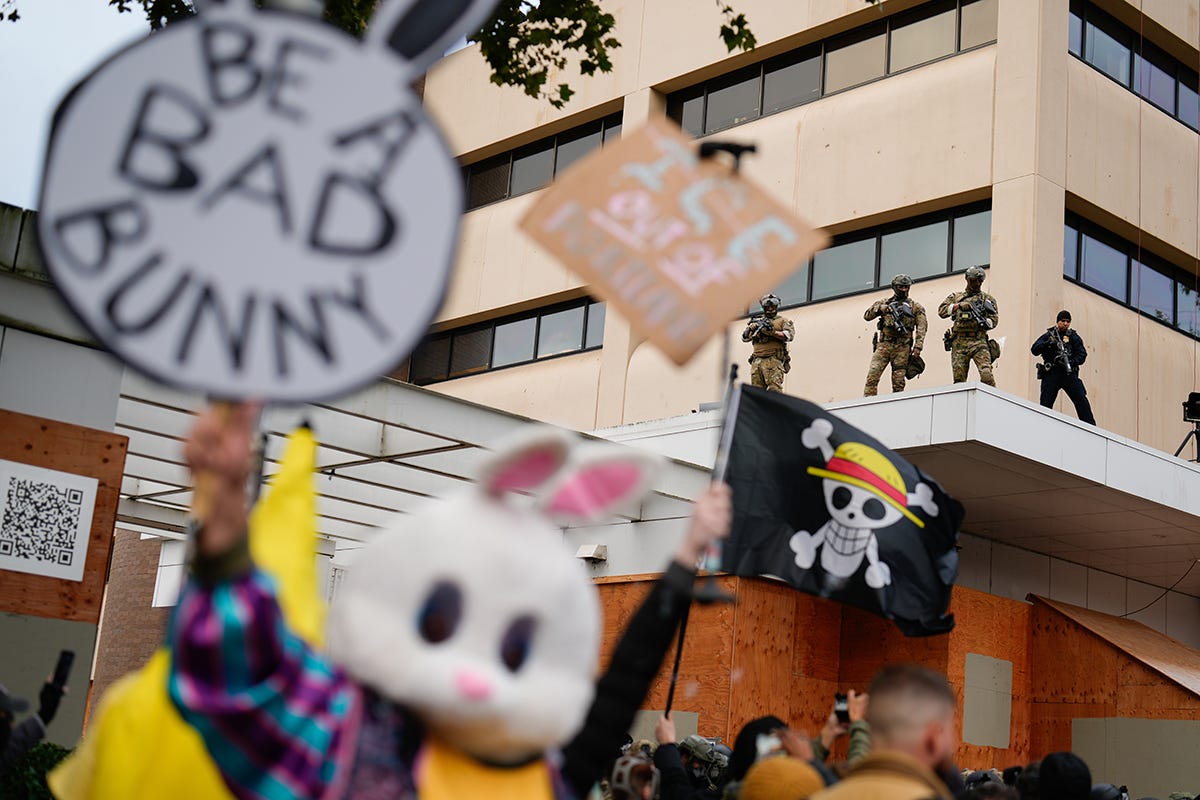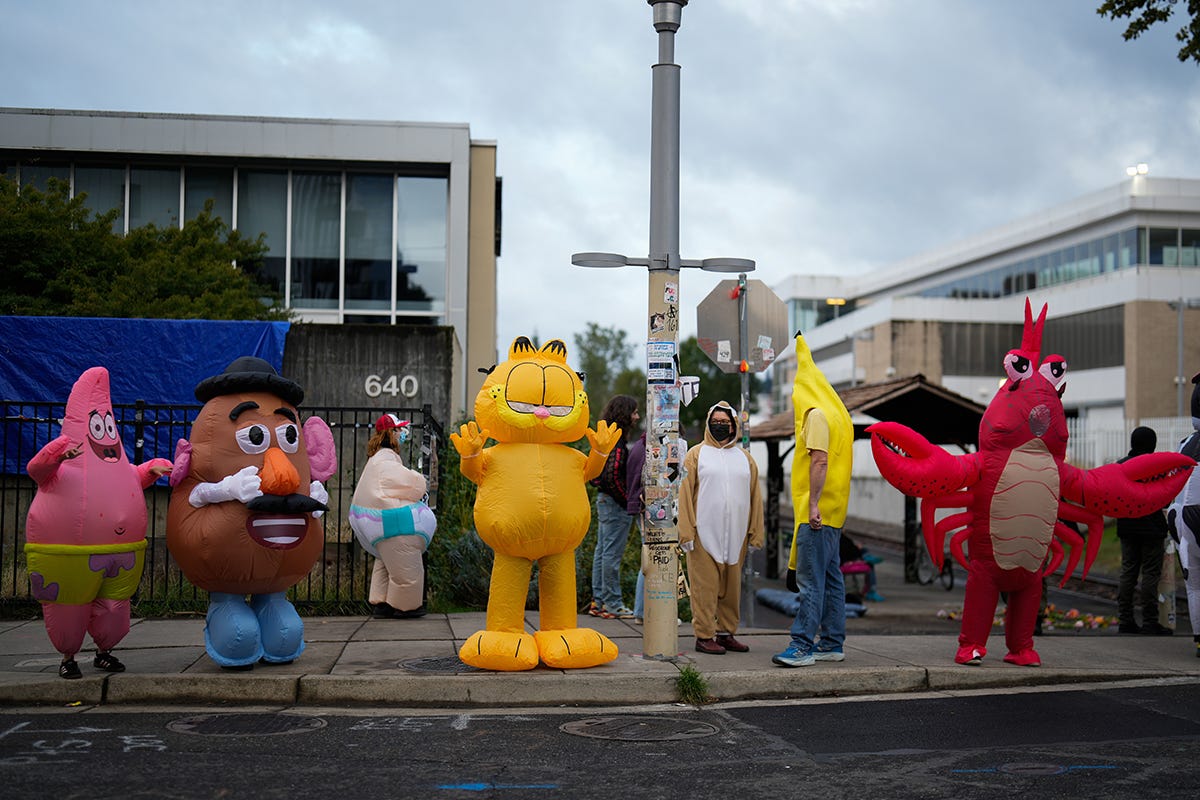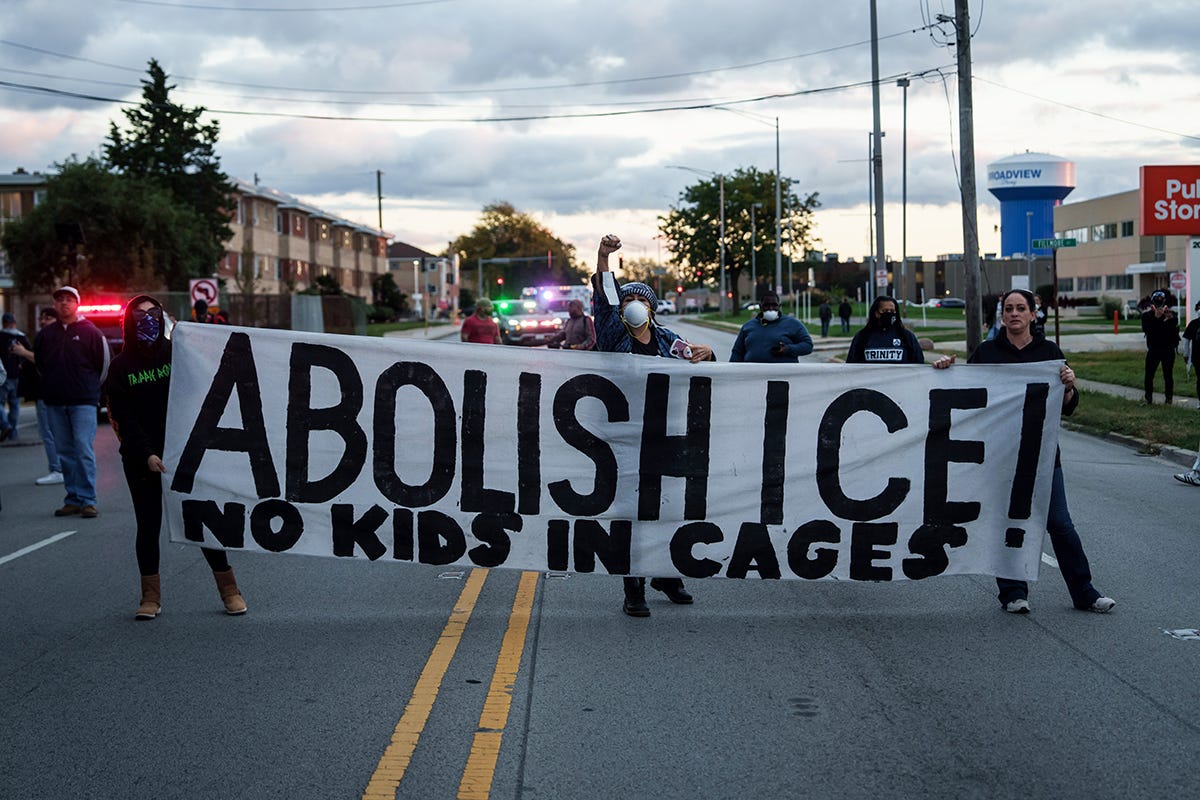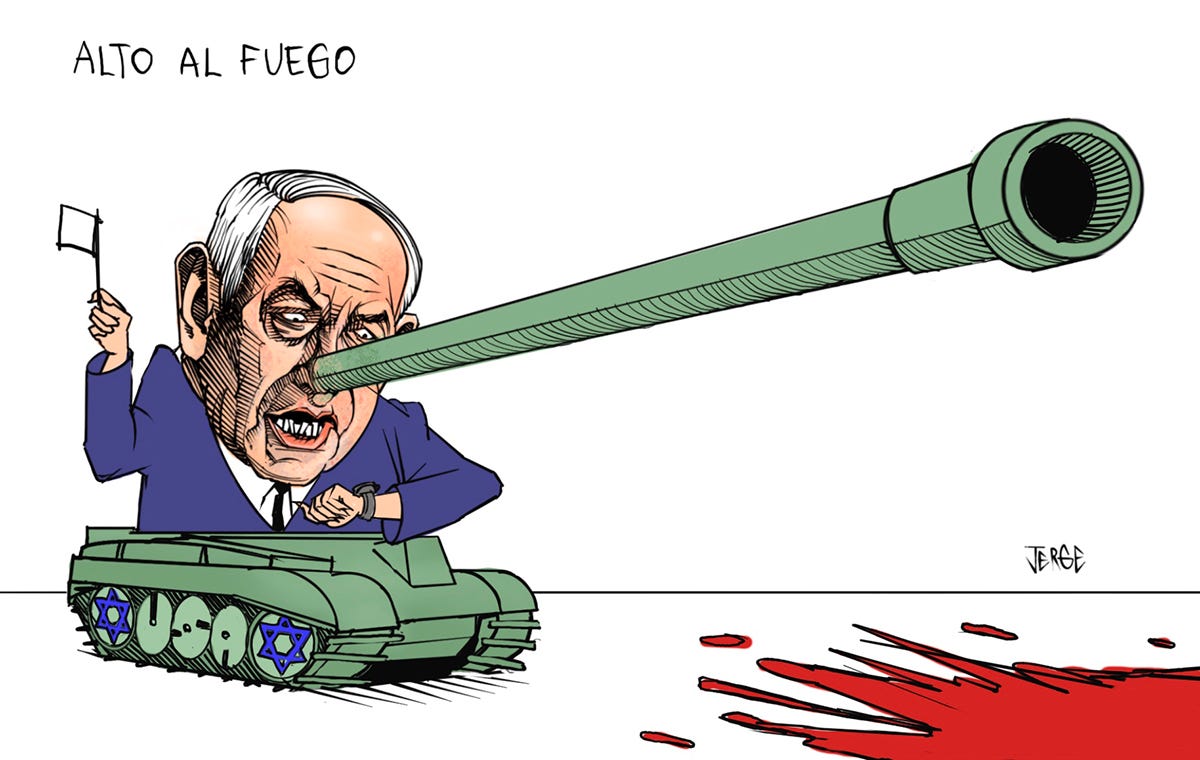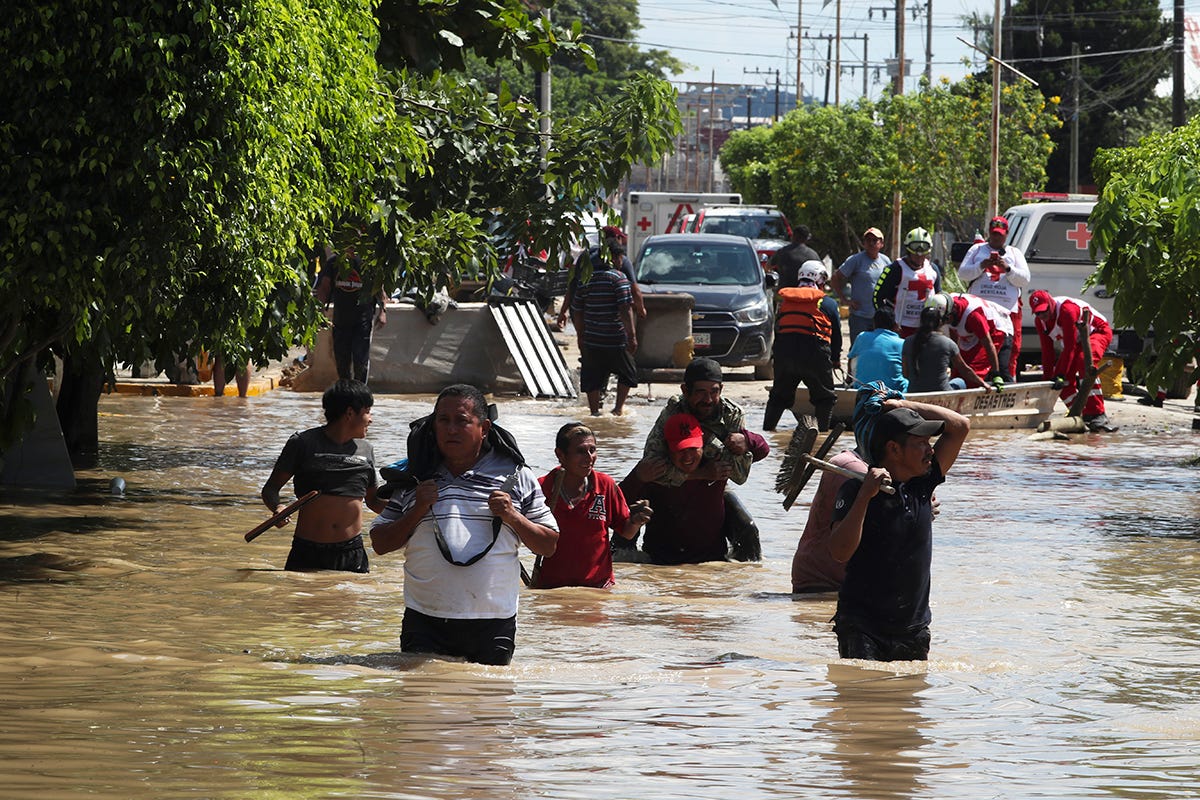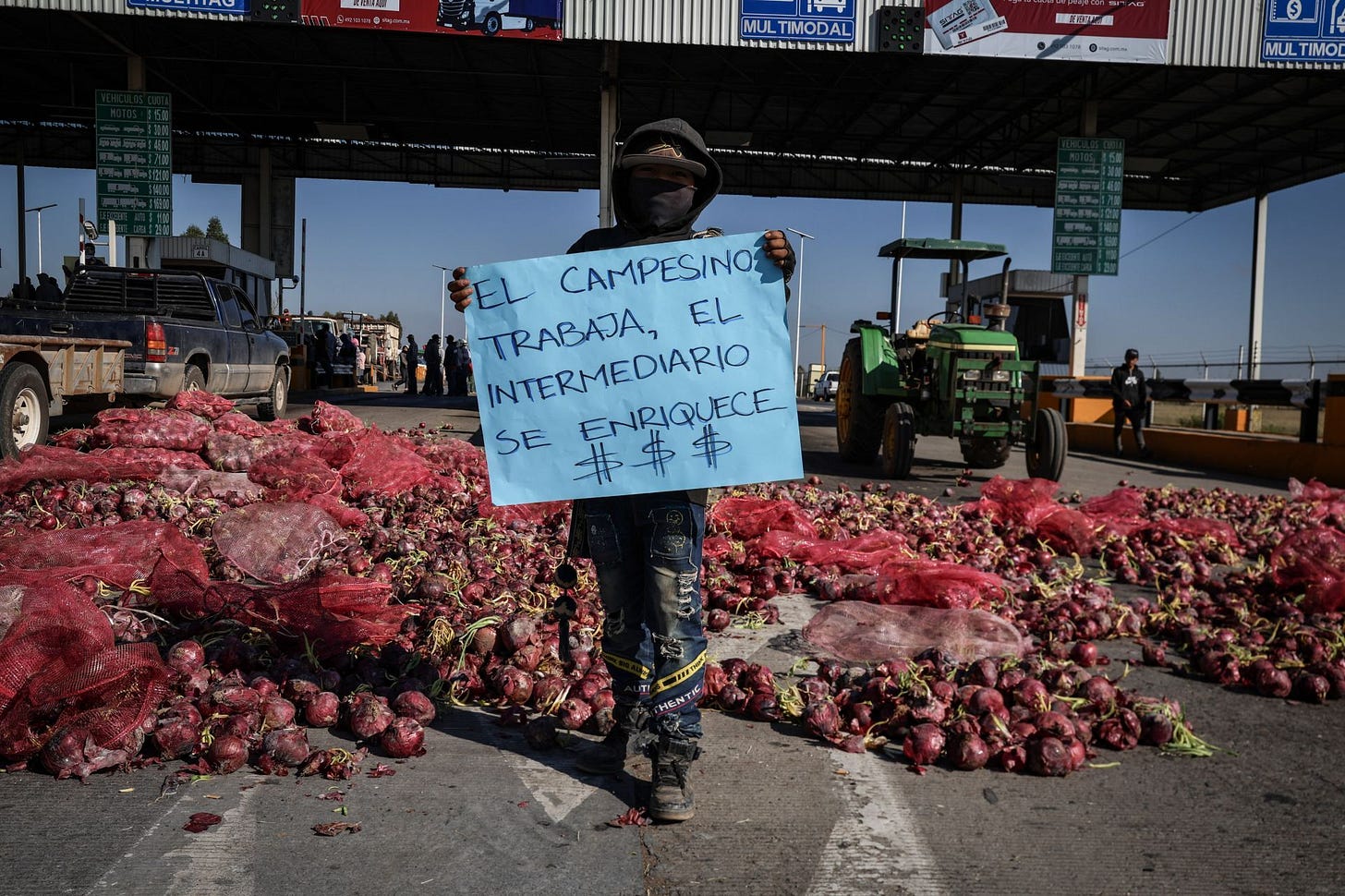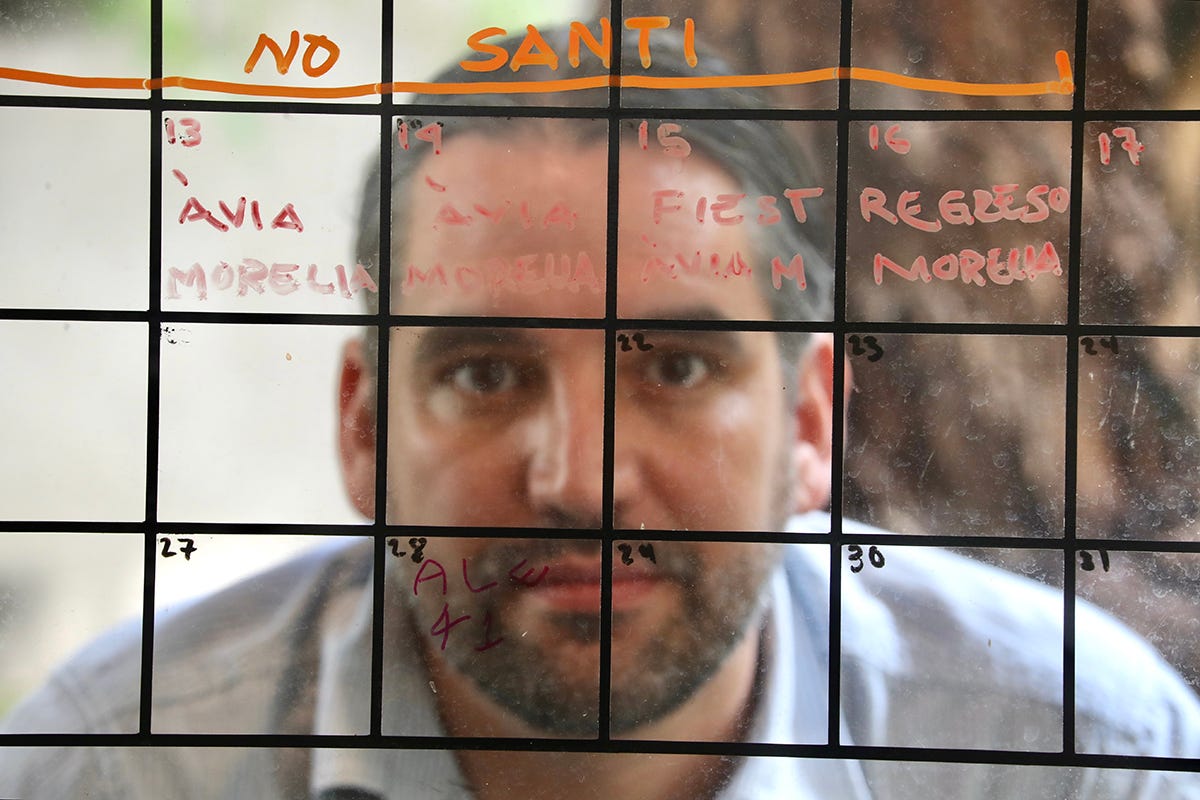Trump’s Illusion vs. Reality
Also in this edition: End of the occupation and genocide? Mexico: The damage after the rains. A “realistic” agenda for COP30. Lula: The existence of hunger is a political decision.
Lea La Jornada Internacional en español aquí.
Trump’s Media War Faces Resistance on the Ground
Official and pro-government media—TV, social media, radio—routinely broadcast images of military troops in armored vehicles with riot gear patrolling the streets of some of the main U.S. cities, along with videos of violent civilian arrests by secret police forces.
In his first nine months, the most significant and resounding achievement of Donald Trump’s presidency has been his media manipulation. The president’s team has succeeded in creating an image of chaos and “war zones” in major cities, claiming they are run by “radical leftists” and other “domestic enemies,” while hiding the fact that, in reality, there is no chaos or “war” taking place inside the United States.
“What’s amazing in Portland is that you see fires everywhere, you see fights,” Trump insisted to the media a week ago. Shortly after, a CNN reporter sent to Portland found that the protesters were actually gathered on a single block around the ICE facility, and that most of them were dressed as frogs, chickens, and other animals—dancing and mocking the federal show of force.
The conservative newspaper The Wall Street Journal reported that just before the White House announced the deployment of troops to the supposed “war zone” in Portland, there were fewer than four protesters in front of the ICE facility—one of them dressed as a chicken.
Last week in Chicago, ICE agents at the Broadview Detention Center, on the outskirts of the city, blocked a Catholic priest who had come to give communion to the detainees. Across town, at a massive Chance the Rapper concert, the screen on stage read “Fuck ICE.” And just a week ago, thousands marched carrying banners that read “No to Trump, No to Troops.”
In other words, what is real is the growing resistance to the policies pushed by the government in Washington.
Chicago and Portland are not exceptions. There are ongoing protests against ICE in cities and towns like Cedar Rapids (Iowa), Waco (Texas), New York, Washington, Atlanta, and many others. The next nationwide mobilization against Trump’s agenda, under the slogan “No Kings,” is set for this coming Saturday. The previous one, held on June 14, was described as possibly the largest day of protest in U.S. history, with around 5 million participants.
The countless expressions of dissent—in the streets, in forums and public squares, in libraries, museums, and bookstores—continue to disrupt the stereotype of the United States and the official narrative being pushed by the regime in Washington, and its domestic allies.
And the resistance isn’t just in the streets. A broad majority of the population—Democrats and Republicans alike—oppose the deployment of troops inside the U.S., according to polls from this month. In other words, the spectacle—and its carefully crafted images—doesn’t reflect the reality being expressed in the streets, nor does it have public support.
The Quote:
How do we even know when wars end?/ (…) Is it when no one is left alive to scream?/ (...) Wars are the only constant in Gaza/ but so is resilience/ so is love/ and so is the will to live.
-Plestia Alaqad, Palestinian writer and journalist
In Case You Missed It
◻️ Will peace include an end to the occupation and genocide? “There is no peace possible on the rubble of Gaza,” wrote La Jornada on the day President Donald Trump returned from his trip to Israel and Egypt, after celebrating the release of Israeli hostages and the thousands of Palestinians detained without charges. In an editorial, La Jornada urged that Israel’s crimes not go unpunished. “It is imperative to seize every opportunity from the international community to pressure Washington and Tel Aviv to fulfill the establishment of a Palestinian state,” La Jornada wrote.
◻️ One hundred thousand homes damaged across five states after heavy rains. Flooding caused by storms has wreaked havoc in dozens of communities across Veracruz, Puebla, Hidalgo, Querétaro, and San Luis Potosí. In response to complaints from residents that local governments aren’t doing enough, the president stated: “Let the people of Mexico know that we will do our very best, as we always do — and especially in this case. We will spare no effort or support.”
◻️ Without corn, no country! Hundreds of farmers blocked dozens of highways in 11 states during what they called the National Agricultural Strike. They are demanding that staple grains such as corn, beans, wheat, and sorghum be excluded from the USMCA (T-MEC), and that the federal government guarantee fair prices for their crops.
◻️ Mexico will present a “realistic” agenda at COP30. The Secretary of Environment and Natural Resources, Alicia Bárcena Ibarra, announced an agenda with seven priorities, including strengthening multilateralism, involving youth, and adopting a gender perspective, which Mexico will present at the United Nations Climate Change Conference in Brazil. Meanwhile, environmental activists marched in Mexico City to protest against megaprojects.
◻️ The existence of hunger is a political decision: Lula. In an opinion piece published in La Jornada, the President of Brazil writes that the Global Alliance Against Hunger and Poverty now has 200 members: 103 countries and 97 partners. He proposes, “At COP30, Brazil wants to show that the fight against climate change must go hand in hand with the fight against hunger and poverty. In Belém, we want to adopt a Declaration on Hunger, Poverty, and Climate, recognizing the deeply unequal impacts of climate change and its role in worsening hunger in certain parts of the world.”
◻️ “Cuba is still alive, still fighting, and still strong,” asserted Cuban deputy Elián González, who was at the center of the diplomatic conflict between his country and the United States at the end of the 20th century, when he was just a child. “Cuba will never lose its dream or its hope.” At a meeting in Mexico this month, 500 delegates from 30 countries demanded that the U.S. government and Congress end the “genocidal” economic, commercial, and financial blockade against Cuba.
◻️ María Corina Machado and gunboat democracy. “The Nobel for María Corina Machado is the latest attempt to manufacture a figure who justifies a military invasion of Venezuela and hands over its oil to U.S. companies,” wrote Luis Hernández Navarro. The award recipient, in a 2018 interview with Voice of America, said: “Western democracies must understand that a criminal regime will only leave power under the credible, imminent, and severe threat of the use of force,” reported La Jornada‘s correspondent in Caracas, Ángel González.
◻️ We are our memories, shaped in a malleable way: Imaz. In his debut feature film, artist Rodrigo Imaz pays tribute to his paternal grandmother. The film premiered in the official competition at the Morelia International Film Festival.



